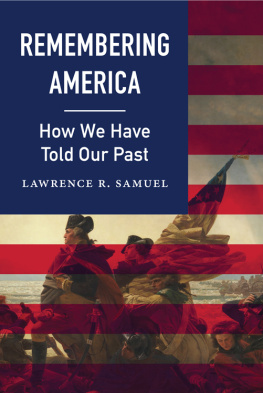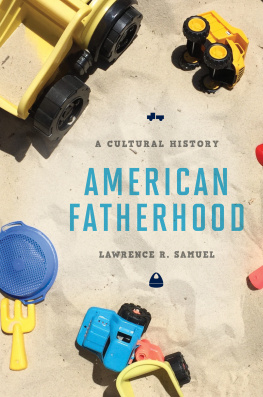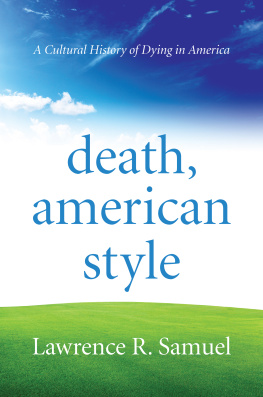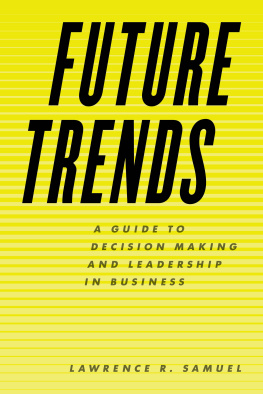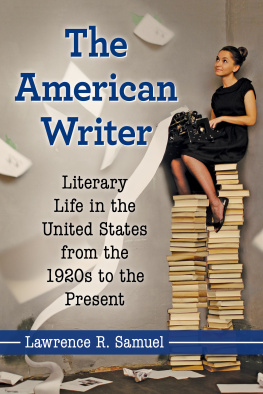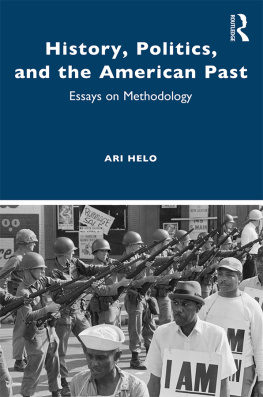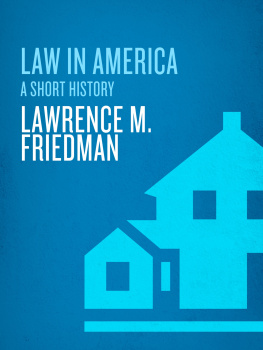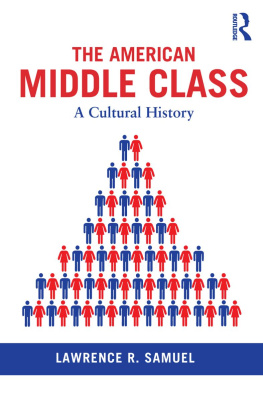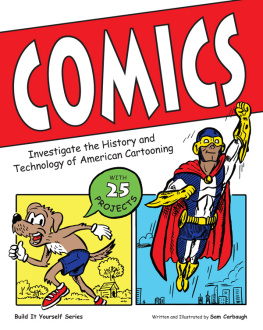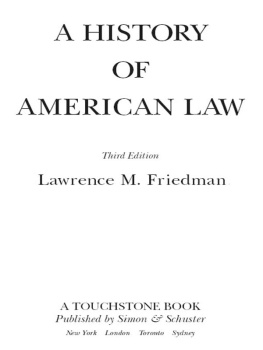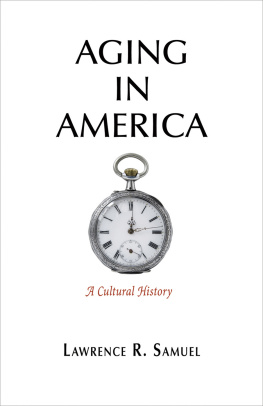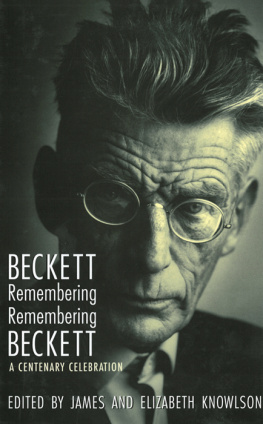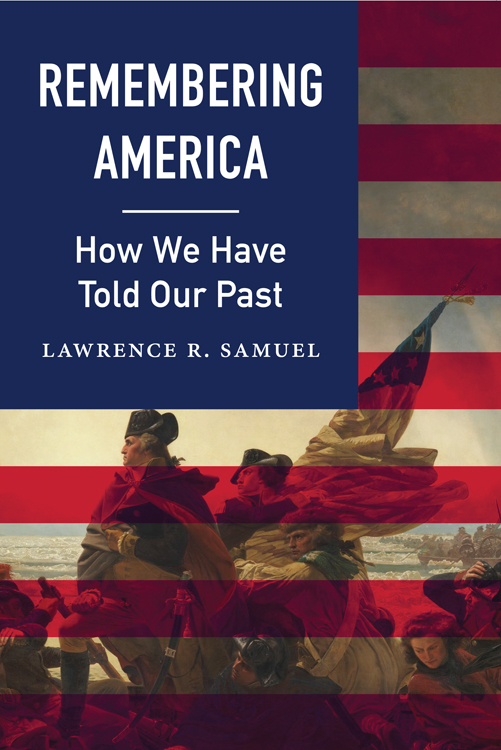
In this intriguing book, Lawrence R. Samuel illuminates how Americans have told and understood their history, and why it matters. He shows how that story has changed over time and why the telling of our past is so intensely debated in the present. A great read on a vitally important topic.
Elaine Tyler May, author of America and the Pill: A History of Promise, Peril, and Liberation
Remembering America is a stimulating and revealing reference for the scholar, educator, and student of the American historical past. Excluding nothing from his purview, Lawrence R. Samuel enlivens and expands the boundaries of historiographical inquiry with a rare gift for wide-ranging cultural observation and analysis distinguished by a pop sensibility.
William Bird, curator, Division of Political History, Smithsonian Institution
Lawrence Samuel has written an engaging and original cultural history of U.S. history itself in which he makes a compelling case for the continuing importance of American history in American life. Although Americans are a notoriously forward-looking people, Samuel demonstrates just how deeply invested we are in the past.... He shows us arguing, often passionately, about the past precisely because history is so central to our identity, both individually and collectively.
M. Todd Bennett, author of One World, Big Screen: Hollywood, the Allies, and World War II
Remembering America
Remembering America
How We Have Told Our Past
Lawrence R. Samuel
University of Nebraska Press | Lincoln and London
2015 by the Board of Regents of the University of Nebraska
All rights reserved
Cover image: Washington Crossing the Delaware, Emanuel Leutze (American, Schwbisch Gmnd 18161868 Washington, D.C.), 1851. The Metropolitan Museum of Art. Gift of John Stewart Kennedy, 1897
Author photo courtesy Piero Ribelli
Library of Congress Cataloging-in-Publication Data
Samuel, Lawrence R.
Remembering America: how we have told our past / Lawrence R. Samuel.
pages cm
Includes bibliographical references.
ISBN 978-0-8032-5433-6 (cloth: alk. paper)
ISBN 978-0-8032-8083-0 (epub)
ISBN 978-0-8032-8084-7 (mobi)
ISBN 978-0-8032-8085-4 (pdf)
1. HistoriographyUnited StatesHistory20th century. 2. United StatesHistoriography. 3. HistoriansUnited StatesHistory20th century. I. Title.
E 175. S 27 2015
973.072dc23
2015002787
The publisher does not have any control over and does not assume any responsibility for author or third-party websites or their content.
Contents
This book is, as the title suggests, a cultural history of American history. More so than intellectual, social, or public histories, which have their own respective agendas, cultural history focuses on the ways in which a particular subject has found expression across a wide swath of everyday life. Surprisingly, no cultural history of American history currently exists, making this admittedly ambitious project an important one. There are innumerable books about some aspect of the history of the United States and no shortage of historiographies of and textbooks on the subject, of course, but no one has yet attempted to tell the fascinating history of American history itself as it was expressed in popular culture and in education.
The irony that the history of American history has been underserved has not been lost. Scholars of all disciplines tend to focus on their area of specialization, often giving little thought to the role of their field within the culture as a whole. American historians past and present have in general overlooked how ripe for study their own subject is, failing to locate it within a broad, contemporary context. A cultural history of American history directly addresses this void by presenting a narrative of the field from both scholarly and popular points of view. With history all around us, a ubiquitous presence in everything, from food to travel to architecture and design, it makes sense that someone takes the time to document its own, compelling story. With this book readers will hopefully gain a much better sense of the important role that the nations history has played within American Life.
One does not have to be an expert in the field to know that American history has recently become a passionate and divisive political and cultural issue: a broad public debate about the teaching of U.S. history was set off by the very controversial changes made to Texas textbook standards in 200910, standards that have wide effect given the large number of textbooks purchased by Texas public schools. The dispute goes to the very heart of how we want to think about and construct our nations past, and clearly illustrates that American history is very much a living, organic thing rather than simply what happened. By dramatizing public struggles over what history meant and how to remember it, we get a true sense of how vibrant the subject has been and continues to be.
Remembering America makes it vividly clear that the subject deserves its own cultural history. For the past century, American history has been an emotionally charged site that has regularly overlapped into the political and legal arenas. The heart of the story revolves around the principal place U.S. history has occupied within education and, to a lesser extent, popular culture. American history has continually shaped and reflected our cultural values and national identity: how we interpret and express our countrys past reveals key insights relating to who we were as a people at different times. The story of American history is thus not a straight line but instead one filled with twists and turns, and ups and downs, its narrative arc as winding as that of the United States as a whole.
More than anything else, however, this book illustrates that American history has played a much more important role in the discourse of everyday life than is commonly recognized. As a famously forward-thinking people far more interested in what is coming around the corner versus what has already passed, Americans have assigned to their own history far less credit than it deserves. American history is, I believe, the Rodney Dangerfield of the humanities (and social sciences, for that matter), getting little or no respect from either academics in other fields or among ordinary folk. (American historys cousin, American studies, has fared somewhat better, but it, too, is generally viewed by the public as an idiosyncratic subject with little real value to offer regarding contemporary affairs.) Since the end of World War I, American history has functioned as a powerful force informing the national conversation in many disparate ways (particularly as a contentious site that has divided as much as united us). We may deny or repress it, but a strong sense of our shared heritage, critically interpreted or otherwise, is in our DNA , making our collective history one of the very few things Americans have in common.
As any history should, this book poses key questions to shed new light on the subject. Were Americans receptive or resistant to historical tellings of their country? What purposes did American history play within the larger cultural climatethat is, what causes were being served? Was history being used to challenge or affirm social values in place at the time? How did history serve the dominant national narrative and how did it critique it (sometimes at the same time)? Answers to such questions help us better understand the cultural history of the United States in different eras. History is, after all, one of our most powerful resources, with the present largely determined by how we remember the past. Fluid and volatile rather than fixed and stable, American history is an ideal barometer for measuring national mood and direction. As editors Edward T. Linenthal and Tom Englehardt showed in their 1996

